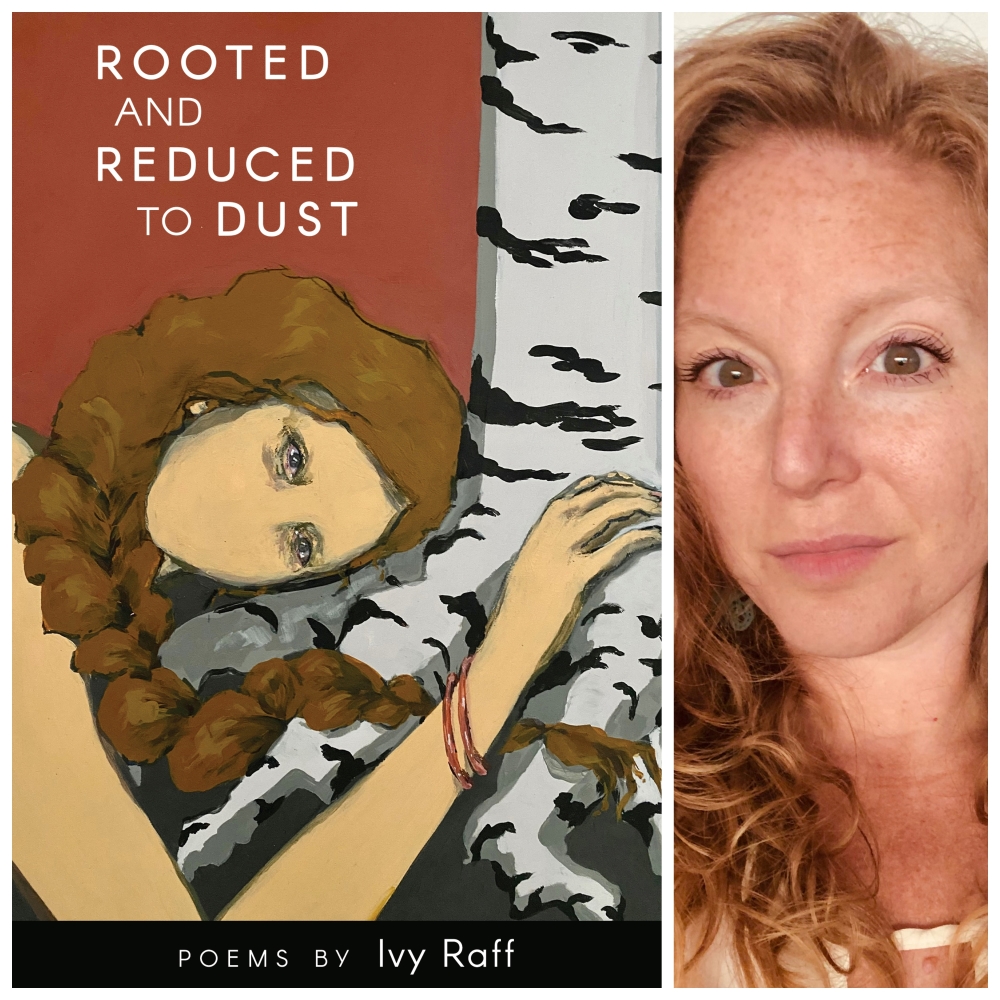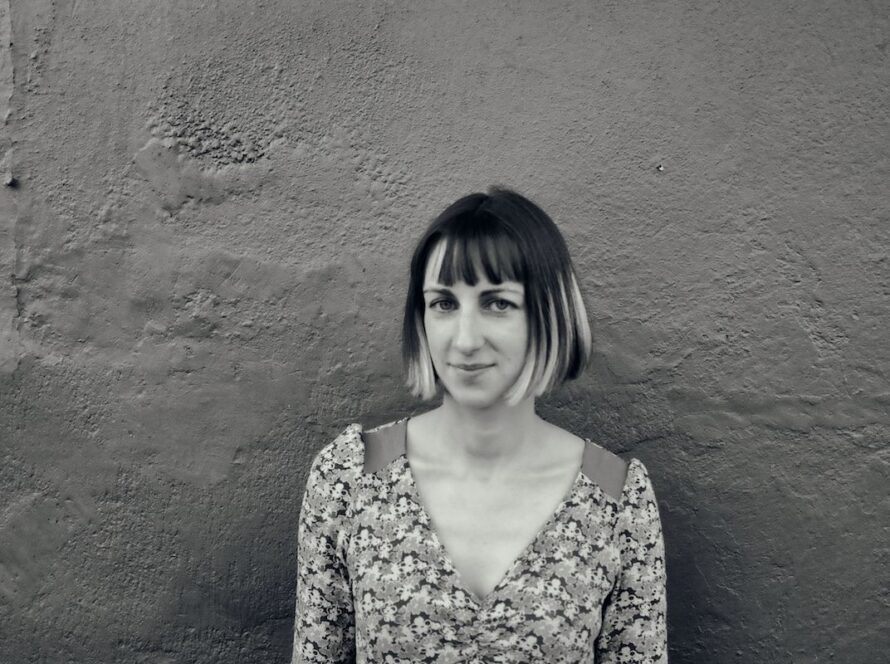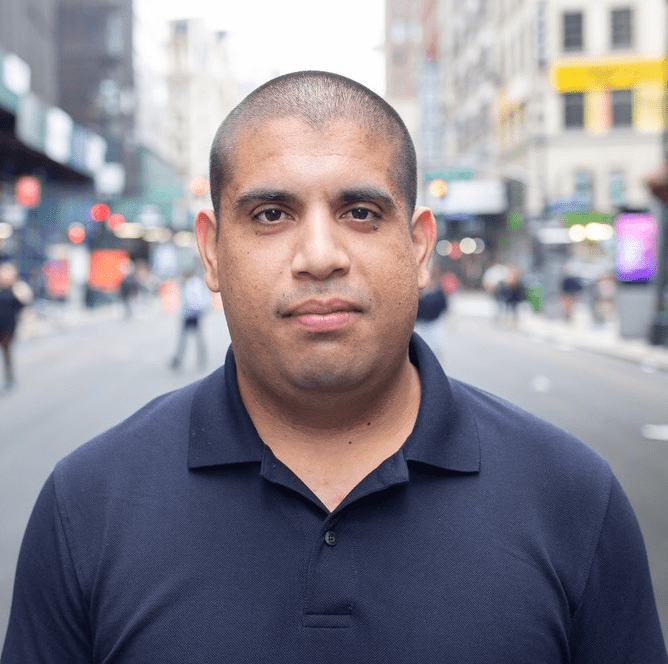by Cristalina Parra

Ivy Raff and I met in the poetry program at UTV in Tepoztlán this past January. We spoke again just as her debut poetry chapbook was released. I was surprised to find out that the poems in Rooted and Reduced to Dust were brewing for 20 years before they became a book.
After a career in tech, at 37 years old, Raff set out to become a full-time writer in 2021. But it’s not as romantic as it sounds.: “It’s a cliche to say that catastrophes turn out to be a blessing,” she explains, “but that is how it went.” Her decision to leave tech was the result of a world that had grown increasingly corporate. The company she worked for was sold to a venture capital firm, and though she tried to adapt to the new culture, it became clear to her that she needed a major shift in her life. Poetry was her answer.
Developed intermittently for twenty years and then rigorously after Ivy’s departure from tech, Rooted and Reduced to Dust was born from a context different from the usual MFA in creative writing-to-publication pipeline. There was heartache in leaving an old life behind but hope and adventure in starting a new one as a poet. When thinking back about how her first publication came into being, Ivy told me: “I was waiting for the book to just come to me and it didn’t. That didn’t happen to me and I don’t think it happens for most writers.” But once she started polishing the writing she never had time to before, some of the most powerful and timely poems came into fruition.
Poems like “On Not Speaking My Own Native Language” shaped our conversation. We spoke about the myriad ways space-time, heritage, and site-specificity are woven into the DNA of this poem and the whole collection.
On Not Speaking My Own Native Language
I have questions,
questions in the only spoken language I speak,
and so the questions are themselves perversions,
distortions.
The questions are observers
By their limited and limiting nature
they cannot observe themselves.
First:
What does it mean to speak languages
separate from one’s roots, and nothing else?
I know that answer, you see, but it lies in me
locked and silent, unable, unwilling to form itself,
rebelling, resisting, giving the shackles
something to scrape against.
That soulsilence has no desire to be heard,
cares not about the ears receiving the fall
of the proverbial tree in its forest–only about the ether
undulating around the spatial shift behind the crash.
Some answers deserve to rest wordless.
Second:
Since, in these languages, every word is the wrong one,
misshapen and misshaping
the language of Touch,
the language of Setting Out a Saucer of Milk for the Strays,
the language of Coming Home After Endless Turns on the Dance Floor
‘Then Deep Frying Whatever’s in the Fridge
Before Making Love Long Into Sunrise, the language of What
They Call Passion and Care, where do these things happen?
Where do they happen?
Dys-ancestral languages translate against the will of direct experience
violate the sanctity of Sweeping the Floor in an Injured Friend’s Home.
They lace What They Call Kindness with subconscious
constructs of giver to receiver. Their languages cage and are caged in clusters
of vectors. Their Word for Spiral succeeds “Downward:”
more imposed directionality still.
I was lucky enough to read these poems walking around New York, where it often felt as if I was traveling with Ivy although I just had her words. The site-specificity of some poems caught my attention since it appeared that space took on a protagonist role in the making of these poems. Places like Far Rockaway, Queens, and the Atlantic’s waves are essential to this collection. With the help of these spaces, the poems in Raff’s inaugural collection interrogate what home can be, how one builds home and how one remembers it. Read more about Ivy on ivyraff.com. Rooted and Reduced to Dust is available from Finishing Line Press, Amazon, and Barnes & Noble.



